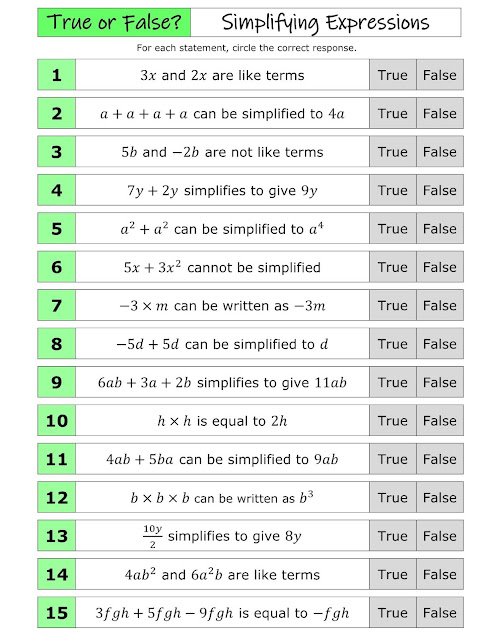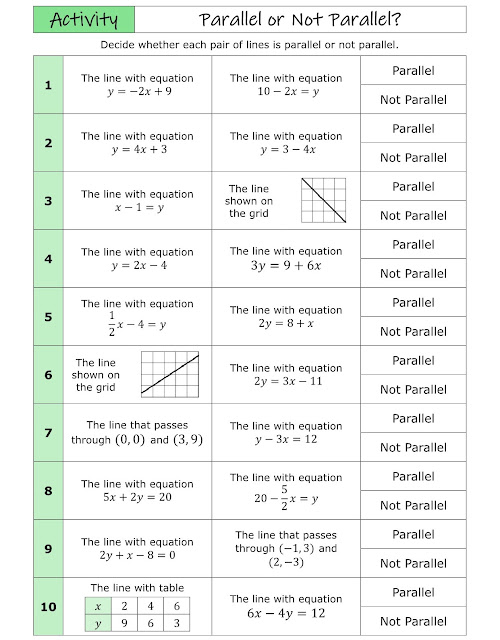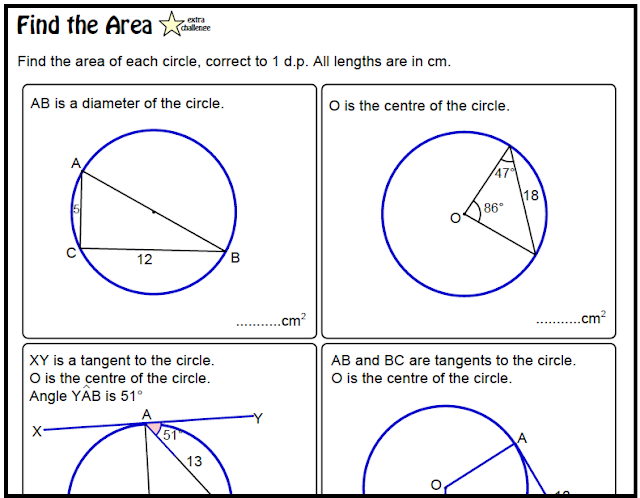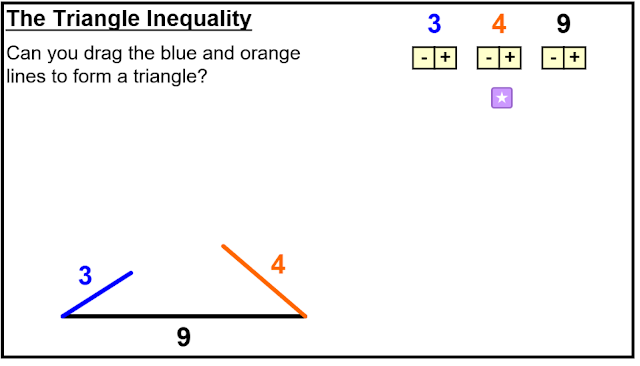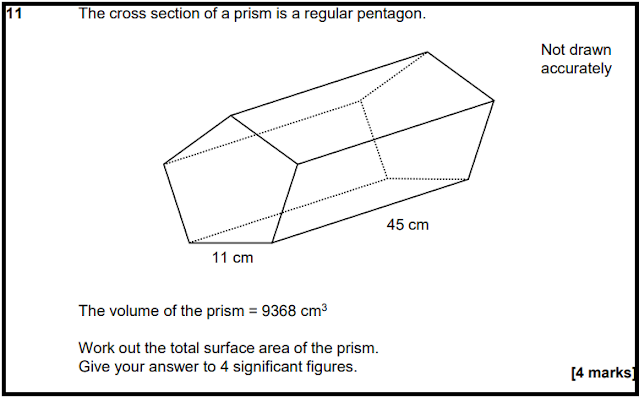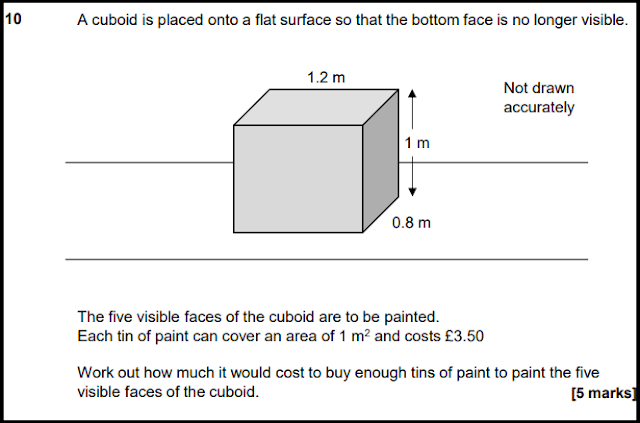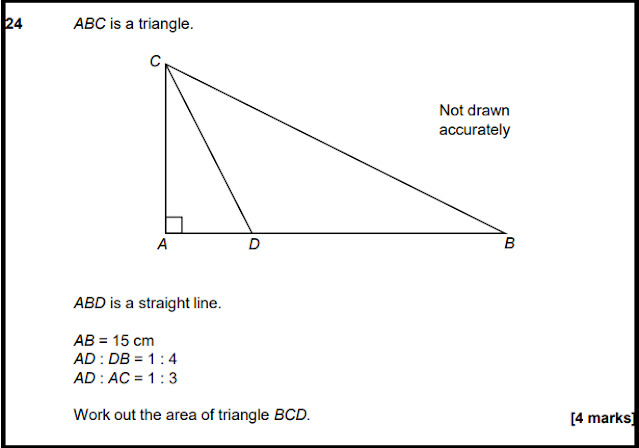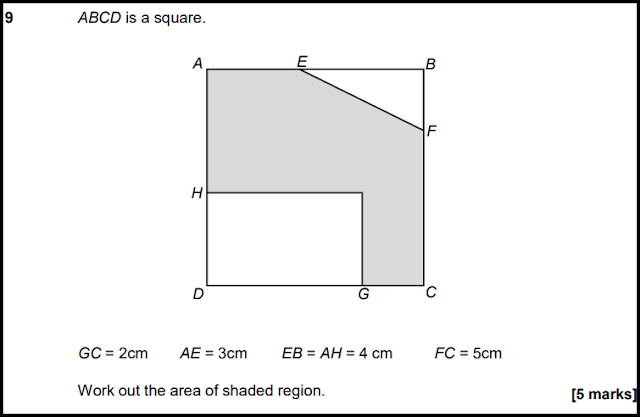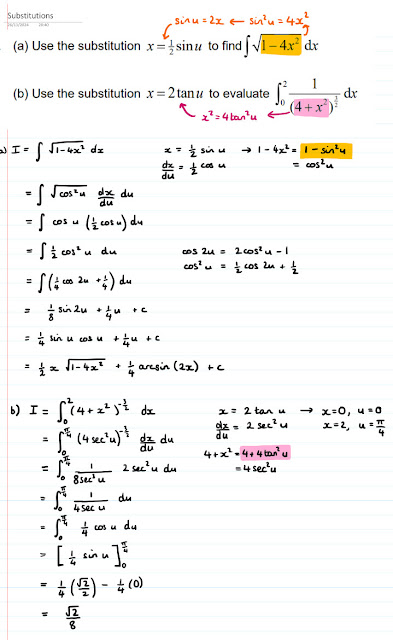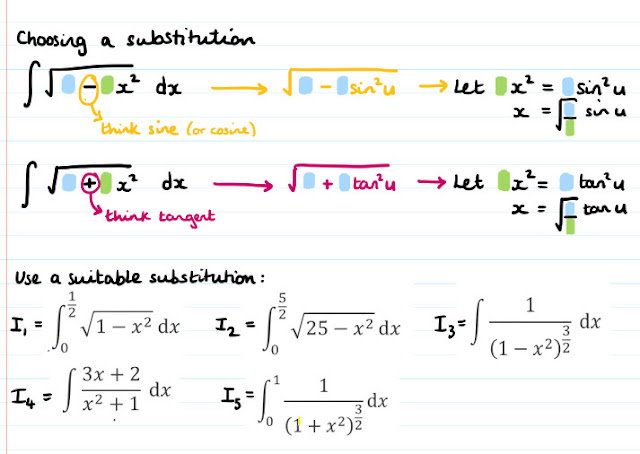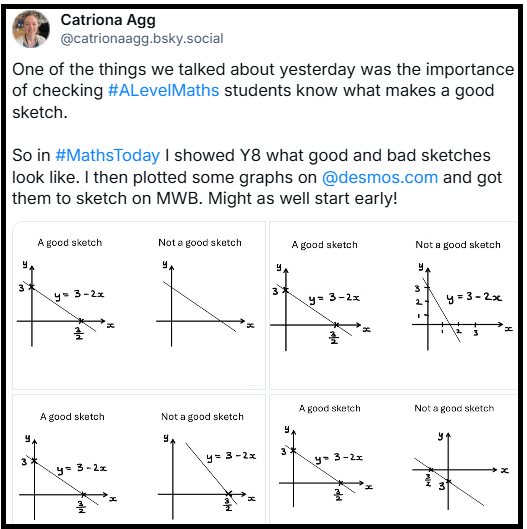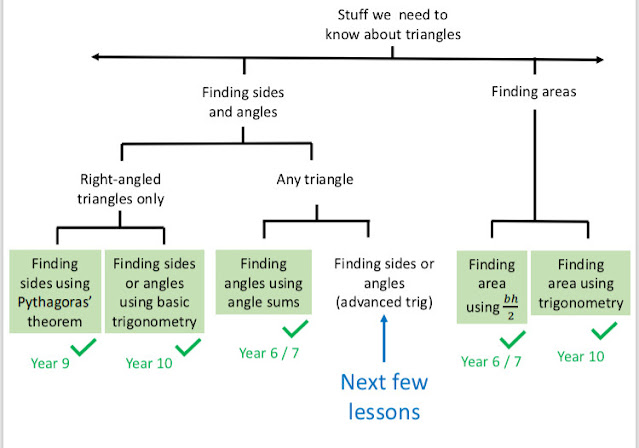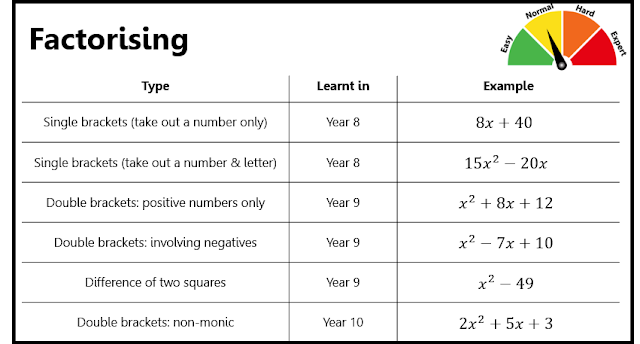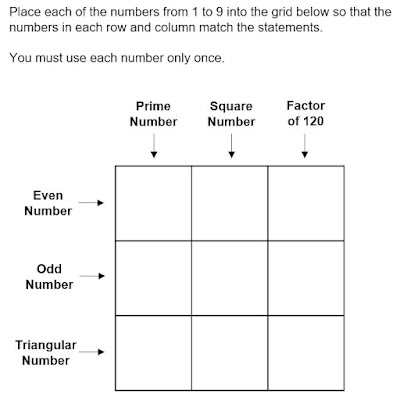1. Dr Austin
2. MathsPad
3. 1st Class Maths
4. Things to Memorise
Since Formula Sheets were reintroduced at GCSE we’ve had students asking whether we have a list of facts and formulae that they still need to memorise. I’ve finally got round to making something for the students at my school. I’ve tried to make it succinct and it’s certainly not an exhaustive list of everything they need to learn, but it does provide a summary of the key facts that they can get parents or friends to test them on. Students need to be fluent in all these facts so they can focus their efforts on reasoning and problem solving.
5. Integration
I very much enjoy Catriona Agg’s posts on Bluesky. A nice example is her recent post about integration using trigonometric substitutions. I’m using this with my Further Maths class next week.
I also loved her recent post about graph sketches.
I do something similar in my lessons – for example here’s a slide I show when I teach factorising to Year 10:
Here are a more few things you might be interested in:
- I received an email from Head of Maths Ben Plowman about a daily puzzle based on the ‘Knight’s Move’ in chess. Ben’s son made this clever little game. I think my readers will enjoy it: knightpuzzle.com.
- Tom Francome’s team has been busy digitising Don Steward’s paper notes and they are now available on Don’s wonderful blog. Read Tom’s post about this here. I’ve really enjoyed reading Don’s notes – they are full of treasures. New teachers who have not yet discovered Don Steward’s tasks – please drop everything and explore them now.
- OCR have recently published some posts that will help teachers develop their A level curriculum knowledge. In Amy Dai’s post A Level Maths and Further Maths: the importance of accurate vocabulary in statistics there’s really helpful information on where candidates go wrong in exams. And Steve Walker has written a great post on Show That questions. These posts and more can be accessed through OCR’s website.
- Paul Rowlandson published a new blog post: ‘Taxing Tasks with Turtles‘ which looks at a selection of geometry problems and investigations that can be explored by using a small amount of coding.
- The Joint Conference of the Mathematical Subject Associations takes place in Loughborough on 14th to 16th April 2025 – check out futureproofingthecurriculum.org.uk for information.
Vacancy
An apology for my absence
You might have noticed that I don’t blog anywhere near as much as I used to. This is constantly on my mind. I really want to keep blogging, I just struggle to find the time and inspiration these days. My job grew this year and although I love it, it can be all-consuming at times. Plus parenting busy daughters in Year 6 and 8 doesn’t leave much time for hobbies like blogging!
My inspiration for content is seriously lacking too. There was a mass exodus of maths teachers from Twitter over summer, and it’s now pretty dead there in terms of posts about resources. There’s a pleasant community of maths teachers on Bluesky, some of them sharing lovely ideas and insights on a regular basis using the hashtag #mathstoday, but for some reason I just can’t get into it. I have tried. And it’s not just social media providing few ideas for blog posts – this year I’m only teaching Years 11, 12 and 13 – I find that when I teach Key Stage 3 I have much more to write about. My timetable is mostly Sixth Form, but having had a seven year break from teaching A level, I wouldn’t be so bold as to give advice about A level pedagogy.
I will leave you with this lovely little puzzle from @1stclassmaths.bsky.social.
Thank you for reading, and all the best for the start of the Spring term.
View the original article and our Inspiration here

